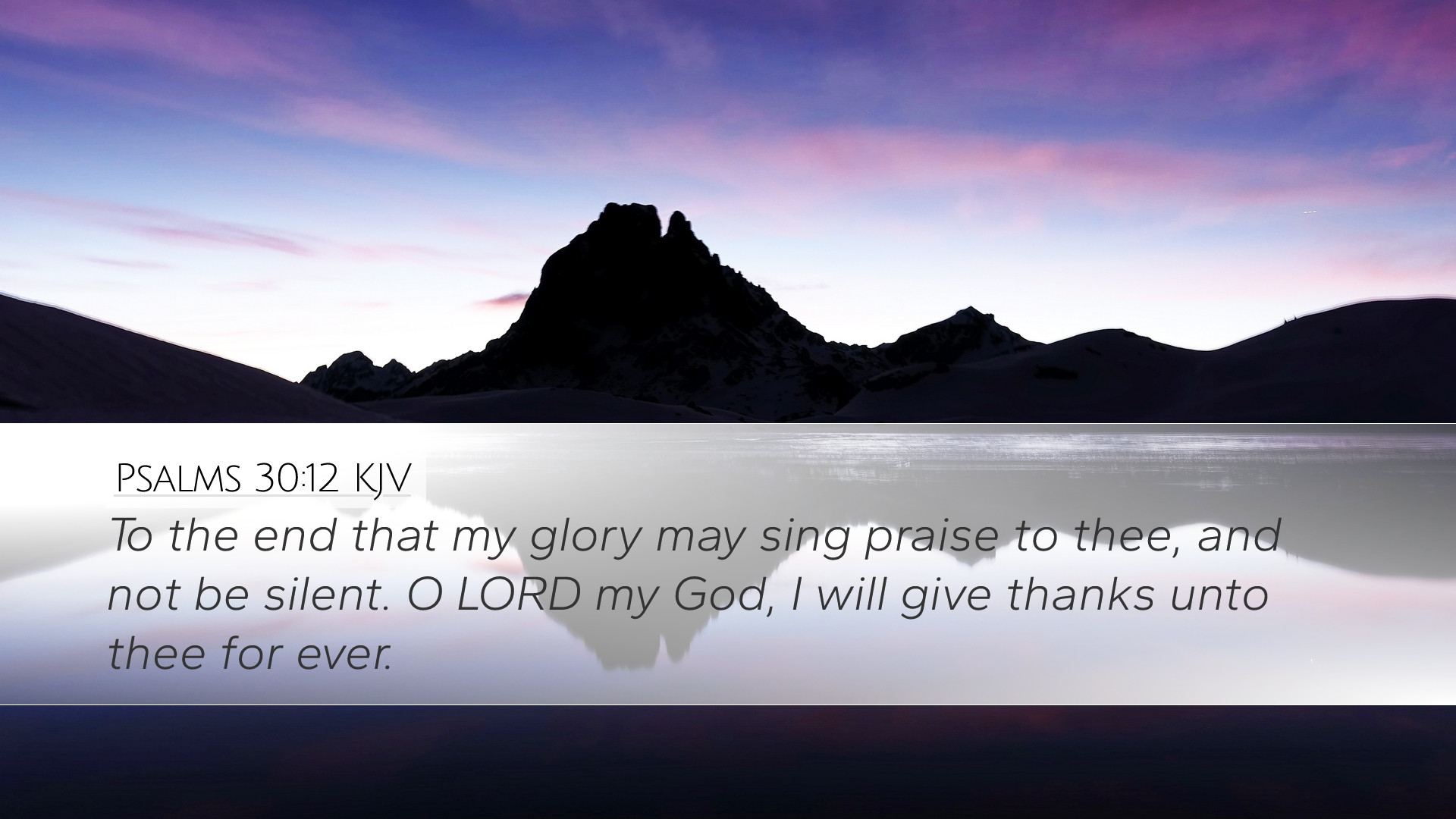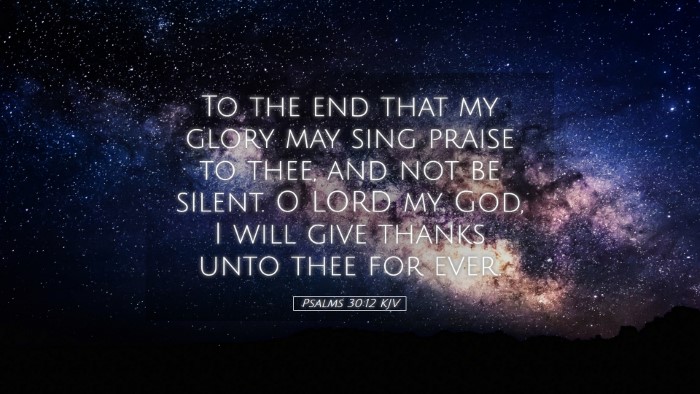Commentary on Psalms 30:12
Psalms 30:12: "To the end that my glory may sing praise to Thee, and not be silent. O Lord my God, I will give thanks unto Thee forever."
This verse encapsulates the theme of the Psalm, which is a profound declaration of gratitude and praise following a season of distress, climatically illustrating the transformative work of God in the psalmist's life.
Introduction
Psalms 30 is regarded as a dedication song, traditionally attributed to David, expressing both personal thanksgiving and communal acknowledgment of God's goodness. In the preceding verses, the psalmist recounts his struggles and deliverance, leading to a heartfelt conclusion that emphasizes the importance of glorifying God.
Main Themes and Insights
1. The Nature of Deliverance
Albert Barnes notes that the psalmist acknowledges the critical transition from mourning to joy, illustrating a common biblical motif where God rescues His people from despair. This reflects the character of God as one who not only hears the cries of His people but responds with mercy and healing.
Reflection
- Think about the moments in life where you have felt God's delivering hand.
- How can you use your personal testimonies to glorify God in communal settings?
2. The Call to Worship
Matthew Henry emphasizes the psalmist's resolve to not remain silent about God's goodness. The idea of the "glory" here refers to the visible manifestation of God's grace and favor. It serves as a reminder for believers to actively engage in worship and proclamation of their faith.
Key Points
- Proclaiming God’s faithfulness encourages others in their faith.
- Worship and thanksgiving are integral components of the believer's life.
3. An Attitude of Gratitude
Adam Clarke points to the enduring nature of the psalmist's gratitude, stating that thanksgiving is not merely a one-time act but a lifelong commitment. Clarke highlights that true thanksgiving arises from a recognition of God’s continual presence and aid.
Discussion Questions
- What does it mean to give thanks 'forever' in your current context?
- In what ways can one cultivate an attitude of gratitude in both good times and bad?
Theological Implications
Theological reflection around Psalms 30:12 offers insights into the nature of God’s covenant with His people. It affirms a God who heals, transforms sorrow into joy, and deserves perpetual praise. This realignment of the heart's focus from self to God can have profound implications for pastoral ministry - encouraging leaders to facilitate spaces for community testimony and worship.
Suffering and Restoration
The psalmist's movement from despair to hope parallels the Christian experience of suffering and redemption through Christ. It mirrors the New Testament promise that God works all things for good (Romans 8:28) and calls the church to embrace a holistic worship that acknowledges both lives’ sorrows and joys.
Application for Pastoral Ministry
Pastors are encouraged to help congregations articulate their stories of transition from sorrow to joy, facilitating testimonies and praise as a means of worship. This not only strengthens individual faith but also fosters a community of encouragement, embodied in shared experiences of God’s grace.
Practical Steps
- Create opportunities for members to share testimonies during services.
- Encourage small group discussions around personal experiences of God's deliverance.
- Incorporate songs and prayers of thanksgiving into worship routines.
Conclusion
Psalms 30:12 serves as a powerful reminder of the importance of glorifying God through our personal narratives. As members of the body of Christ recount His faithfulness, we build a culture rooted in gratitude that honors God and uplifts one another.
In reflection, what songs of glory are you singing to God today? How can you encourage others to join in this chorus of thanksgiving?


